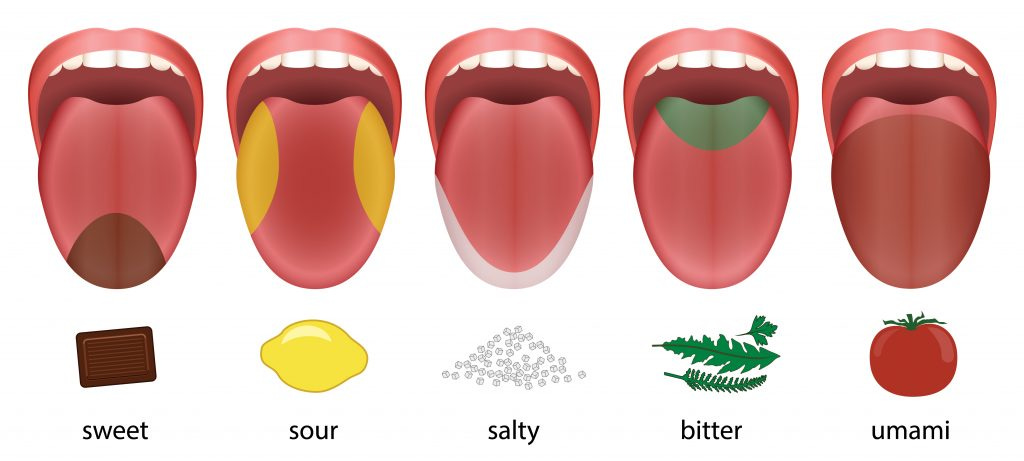The sun is out during the day, and the moon during night. Different parts of the tongue taste different flavors. Synesthesia is rare.
All things we learned at school. All fake!
You’ve probably lived long enough to have seen the moon out during the day. And you’ve probably realized all parts of the tongue can taste everything. If not go get some salt right now and pour it in different parts of your tongue, I’ll wait.
…
…
Shocking, isn’t it? But wait, there’s more.
Now I don’t make any claim to knowing how synesthesia works. But I know it does.
I first got alerted to this when I was finishing my Masters and me and my colleagues were out in a club and one of them—who had worked at a circus—told us to “Dance your thesis”. And we all immediately knew what to do. How the fuck?
Since then I’ve seen endless examples of this sort of synesthesia. Social media is littered with it, in part because it makes for a fun “contrarian fact”. Some examples:
Now, what the hell, right? How could we not notice something that is right in front of us?
Now maybe you are “respectable” and need more “academic” examples. Okay. Let’s look at the kiki-bouba effect.
The kiki-bouba effect is this association most people make when presented these two shapes and told they’re from an alien language where one stands for “kiki” and the other for “bouba”.
Now unless you are an alien the left one just “feels” like kiki and the right one like bouba.
The reason this matters is that, if you paid attention in school, not only did you learn the moon isn’t out during the day and different parts of the tongue taste different tastes but you also learned that the connection between a symbol and a sound is arbitrary.
Well, evidently not: we connect sound to shapes. A form of synesthesia.
So, again, what the hell, right? How can we not notice these things, right in front of us? Why do they get highlighted to us as viral memes that get their traction from being empirically verifiable and “””counter-intuitive””” , counter the intuition school instilled in us?
I think it’s simple. I think there are endless taboos on noticing. You are not supposed to actually look. You’re supposed to not notice. It’s “impolite” to notice. Sure, people leak info about their intentions all the time but you’re not supposed to act on it much less notice it.
Now, okay, but WHY THE HELL? Well, remember how this whole time I’ve been talking about creation and maintenance of knowledge gaps ensuring arbitrage opportunities? Yea…





Fake, yes, and not fake. Fake when reductionism is applied outside the particular fields where it is useful.
"Muscle" is a singular system of force generation and attachment points that act as a gestalt. In practice, muscles never move in isolation unless you apply a targeted electrical shock. So, from a functional perspective, it is better to think of there being merely "muscle", or "one muscle", applied to a task.
But there are situations where it is useful to talk of singular muscles, such as in repairing damage in medicine or in weightlifting (where the "muscle" involved is more accurately the location of most force generation).
Similarly,
"Sensation" is a singular system of receptivity and emphasis that is a blend texture as a gestalt. In practice, sensations are never received in isolation unless you apply a highly targeted stimulus. So, from a functional perspective, it is better to think of there being merely "sensation", or "one sensation", applied to a task.
But there are situations where it is useful to talk of singular sensations, such as detecting locations of sensory limitation in medicine or in media targeted at a specific sensation, (where the "sensation" involved is more accurately the location of most prominent sensation).
Reductionism outside the narrowly appropriate fields is indeed damaging to sensation and action in life.
Fun fact about salt! It interacts with specific ion channels on the tongue, and is a more direct, electrical interaction. You’re literally sensing the charge of ions!